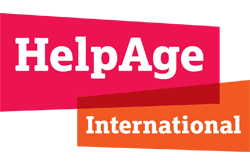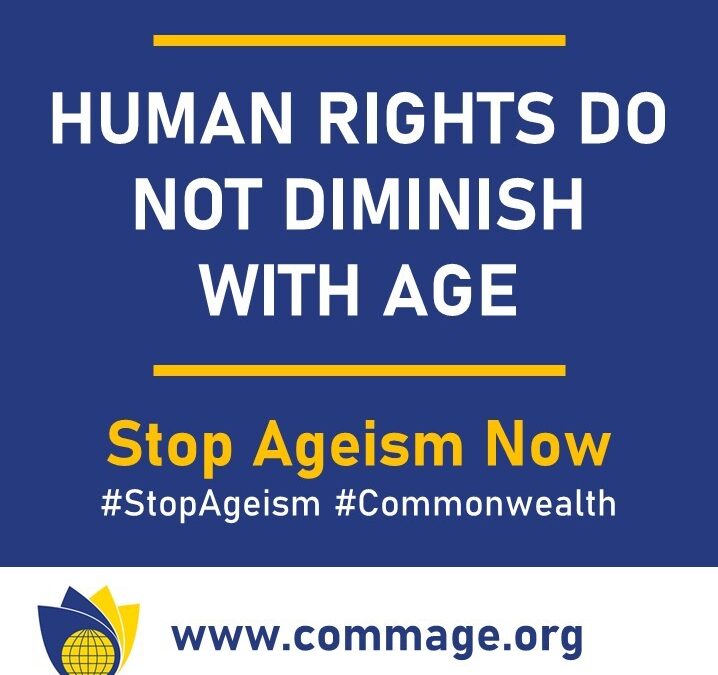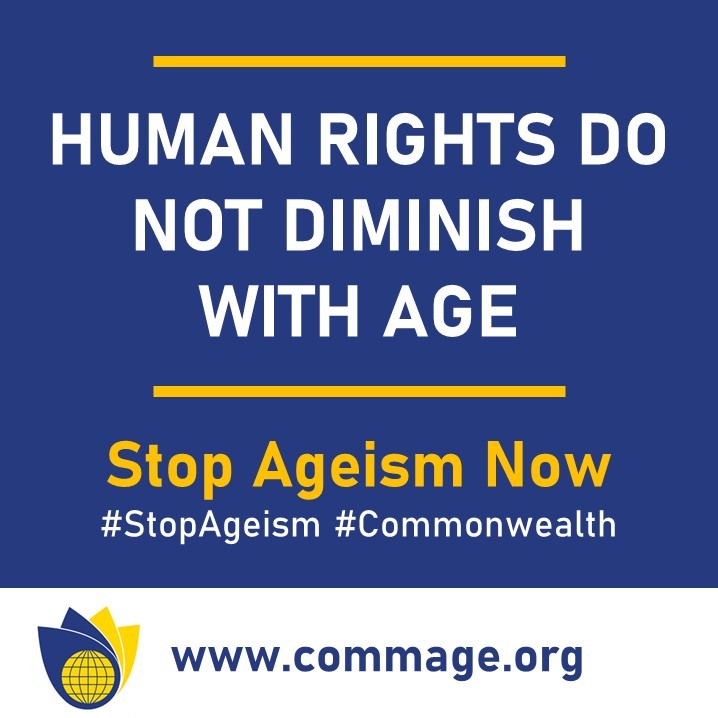We are delighted to launch our white paper, Ageism in the Commonwealth, How COVID-19 has exposed the urgent need for further recognition and protection of the rights of older people in Commonwealth countries.
Written in partnership with HelpAge International, this paper examines how the wellbeing, dignity and voice of older persons have been impacted in response to the COVID-19 pandemic in Commonwealth countries.

It also looks at how countries can ensure older people’s rights are respected in a more age-friendly Commonwealth, and makes recommendations that leaves no one behind.
Andrew Larpent, Chair of CommonAge says this presents clear evidence of the institutionalised ageism that has been an unrecognised condition within Civil Society throughout the Commonwealth, and more widely, for decades, and which has been vividly exposed by the pandemic of 2020/21.
It demonstrates clearly the importance of the role of CommonAge in working and advocating for a more inclusive all-age friendly Commonwealth in which discrimination and marginalisation of older generations is consigned to history and where all citizens are recognised for the value they contribute to society, whatever their age,” he highlights.
Some key recommendations for Commonwealth institutions include:
- Identify concrete steps by which the Commonwealth will implement the UN Secretary General’s recommendation to build stronger legal frameworks to protect the human rights of older persons, including taking action to stop ageism and prohibit age-based discrimination.
- Give Commonwealth support for the full implementation of the WHO-initiated Decade of Healthy Ageing, including a global campaign to combat ageism.
- Make clear and specific reference in the Commonwealth Secretariat’s Strategic Plan of the need to work towards the full enjoyment of the rights of older people in an age-friendly Commonwealth in which all generations can live together in mutual support.
- In planning for CHOGM 2021, ensure that age-related discrimination, inequalities and denial of the human rights of older persons are recognized as key intergenerational cross-cutting issues and that specific time is allocated for Heads of Government to discuss it.
- Recognise older people as a stakeholder group in Commonwealth engagements with civil society
Some key recommendations for Commonwealth member states:
- Recognise older people as a key risk group in the pandemic and integrate a focus on older people into COVID-19 response and recovery plan. Ensure older people’s voices are heard and that they can participate in building forward better.
- Live up to the aspirations of the Commonwealth Charter by taking a stand against ageism and age discrimination.
- Ensure that public health measures adopted to respond to the pandemic are temporary, necessary, proportionate and do not discriminate based on age or any other characteristic, such as gender or disability.
- Foster social dialogue between generations to promote intergenerational contact, understanding, and solidarity to reduce ageist attitudes and stereotyping.
- Recognise older people’s work and contributions to their families, communities and the economy, and ensure they are provided the support necessary to remain active and involved.
- Ensure all member states have adequate long-term care and support policies for older people in place.
- Include older people in Commonwealth plans to address violence, abuse and neglect during the pandemic and ensure prevention, response and support services for older survivors are categorized as essential.


